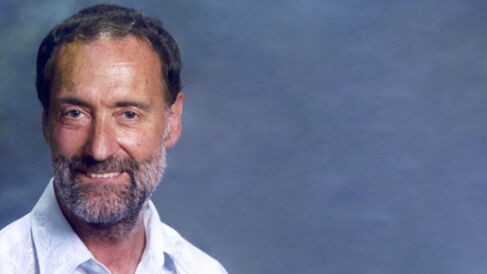
We are deeply saddened to learn of the death of Professor Michael Waring, Emeritus Professor of Chemotherapy, on Saturday 16th November 2019.
Michael was well known to many in the Department due to his long and learned relationship with us as a PhD student, Lecturer, Reader, and then as a Professor in the Department of Pharmacology. He was a Professor of Chemotherapy and had long-standing interests in the interactions between chemotherapeutic drugs and DNA and in the mechanisms of antibiotic function.
At the start of Michael's research career, the structure of the DNA double helix had been known for less than a decade and was widely criticised. It was obvious to Michael, however, that understanding the molecular characteristics of DNA would revolutionise the life sciences. As such, he jumped straight in to the study of nucleic acids during his PhD in Ernest Gale's group in the Microbiology Unit in our Department, where he investigated microbial metabolism to identify the targets of antibiotics. Specifically, Michael focused on actinomycin D, an antibiotic known to interfere with DNA functions, finding that it acts through inhibiting RNA polymerase to block RNA synthesis. As the techniques to purify RNA polymerase had only just been published, Michael set out to discover further biomolecules that affect DNA as well as this essential enzyme. Of the various compounds he identified, the mutagenic acridines are particularly interesting as these were widely used as stains in histology and as they offer some protection against diseases. As part of Michael's efforts to characterise molecules that interfere with nucleic acids, he developed novel techniques to study their binding to DNA, and was one of the first researchers to show ethidium bromide is a DNA intercalating agent, eventually leading to its widespread use for staining DNA gels. He also identified the antibiotic now known as doxorubicin as a powerful intercalator; it is routinely used in most therapeutic cocktails to treat major forms of cancer all over the world, saving millions of lives.
After a one-year postdoc in Washington D.C. at the Carnegie Institution Department of Terrestrial Magnetism where he discovered the existence of repeated sequences in the DNA of higher organisms in collaboration with Roy Britten, Michael returned to Cambridge and continued to focus on DNA-targeting molecules that distort its structure and function for his entire career. He was the first to show that intercalation by ethidium removes and reverses DNA supercoiling, after which he discovered the phenomenon of bis-intercalation by echinomycin and diacridines. His lab was one of three that simultaneously developed footprinting to determine ligand-binding sites on DNA, and went on to investigate the kinetics of binding as well as methods for making new antibiotics by directed biosynthesis. He also established the critical role of the 2-amino group of guanine in sequence recognition by small (and some large) molecules, and pioneered the use of atomic force microscopy to study the binding of drugs to DNA.
Michael was also a stalwart teacher, supervising for both Part II and III and lecturing first year medics on DNA-targeted cancer chemotherapy for many years. He was a great supporter of the general Part II/III supervision system and - even before he formally joined our Department in his retirement - was a regular and thoughtful contributor, with a tremendous breadth of biochemical insight.
Outside of science, Michael become a Fellow of Jesus College in 1965, moving to emeritus status upon his retirement around 2010. He was an assistant organ scholar at Downing College and was a Trustee and great supporter of the Jesus College Boat Club. Michael also enjoyed travelling and more latterly spent the winter months at his house on New Zealand's north island. He would want this obituary to note that he held a commercial pilot licence! Indeed, Michael was very generous and treated many of his college students and others to memorable flights over Cambridgeshire in his plane.
We were honoured to appoint Michael as an affiliate lecturer of our Department in 2016 and it was always wonderful to see him at our seminars and discussion groups - usually sitting near the front and in rapt attention. He was always conscientious, committed and a consummate professional, and much admired by both undergraduates and faculty. He was an academic and intellectual role model for us all and will be sorely missed.
